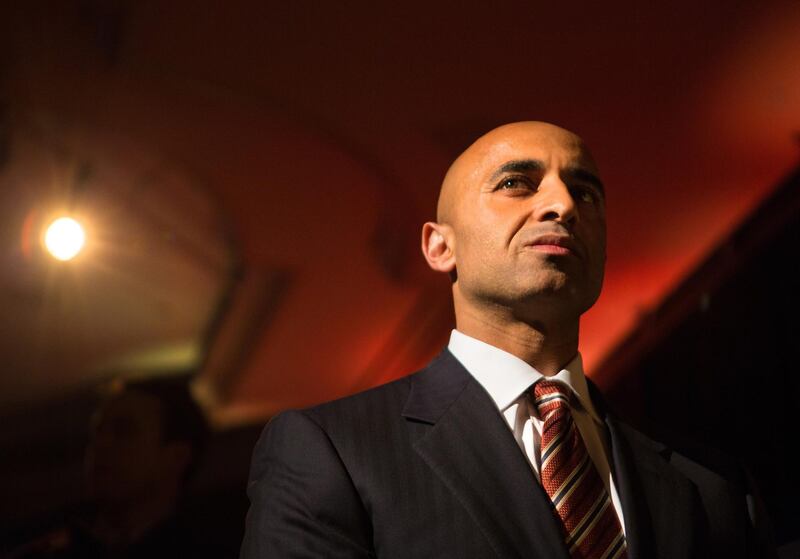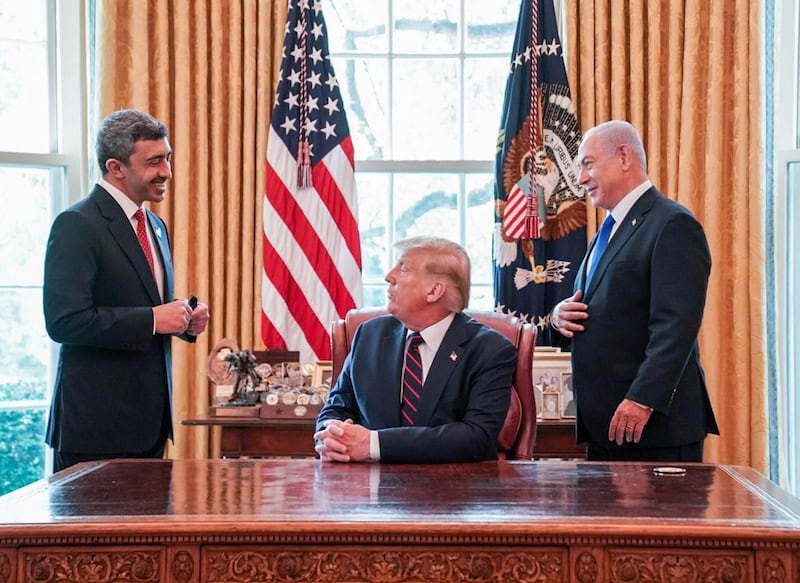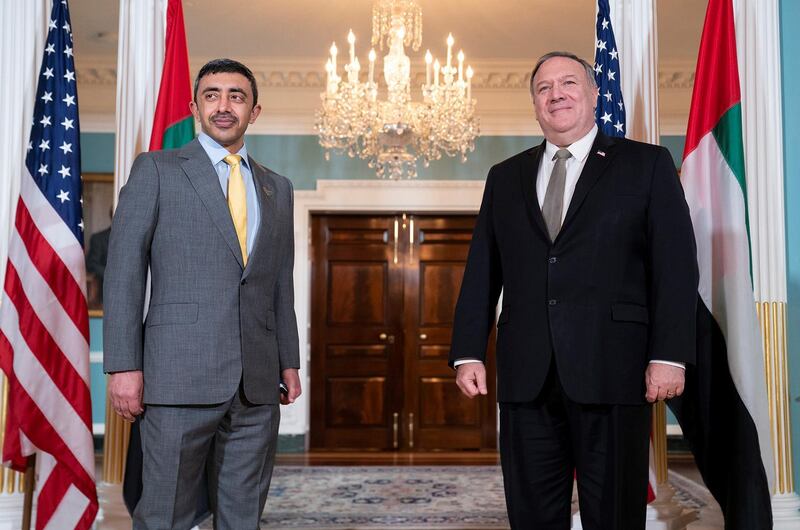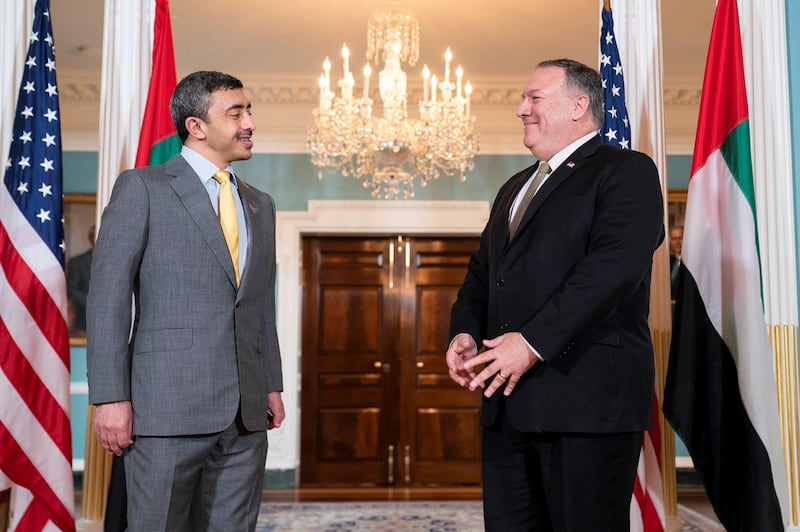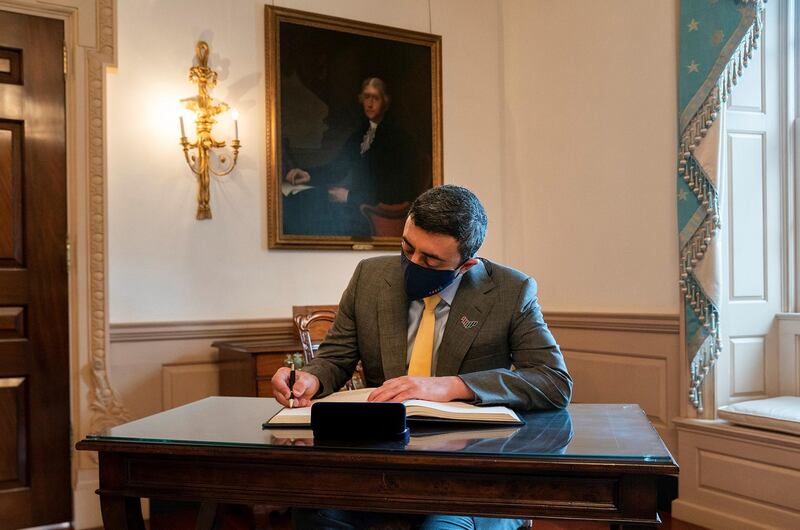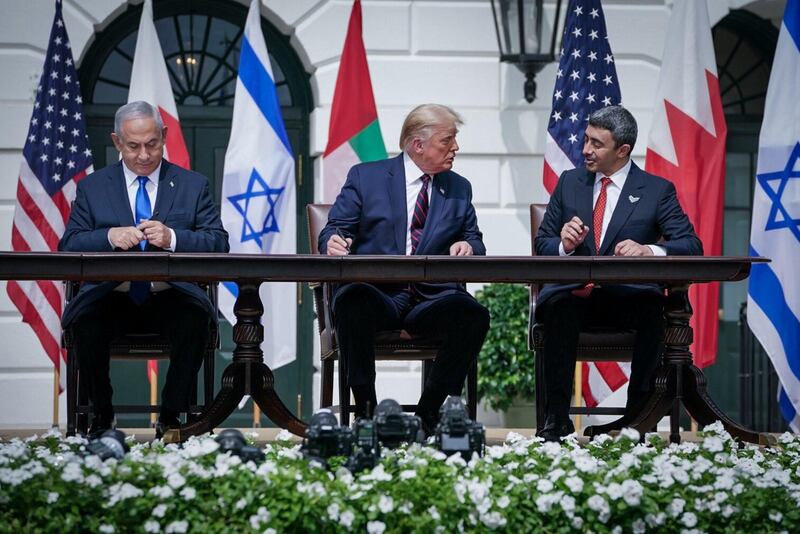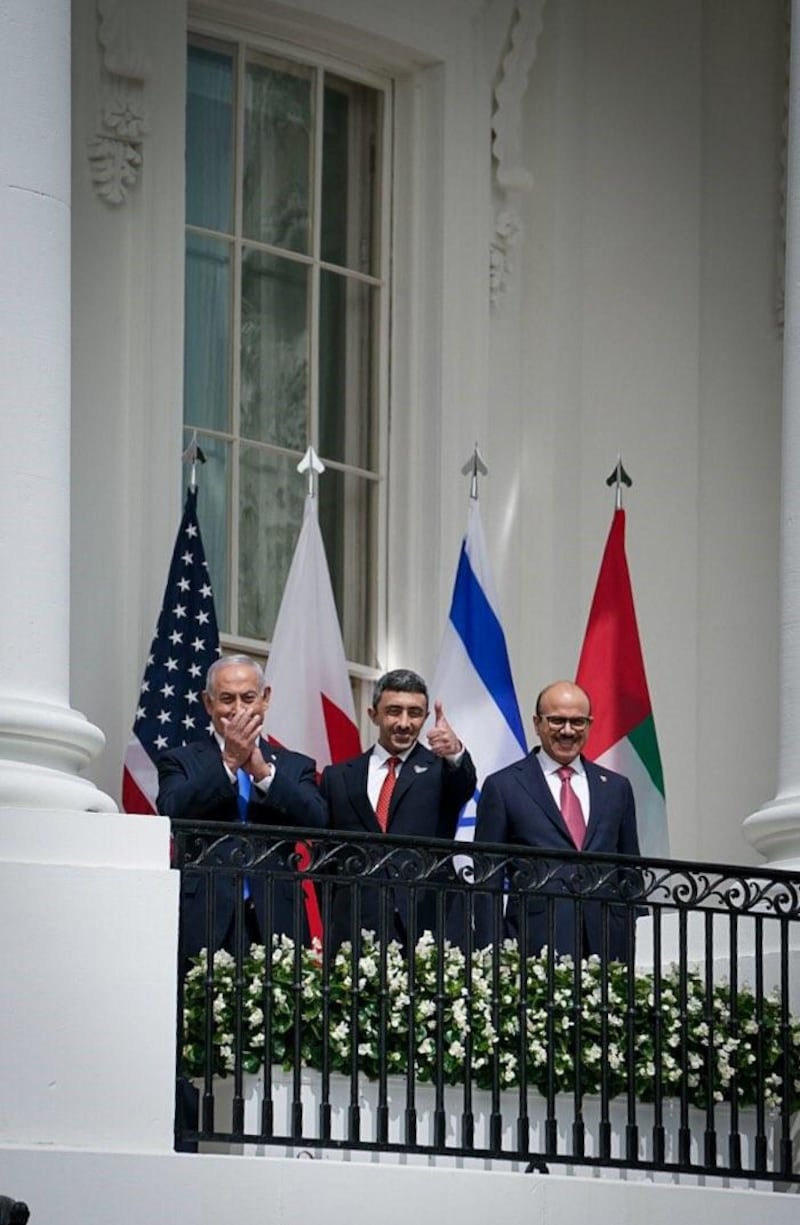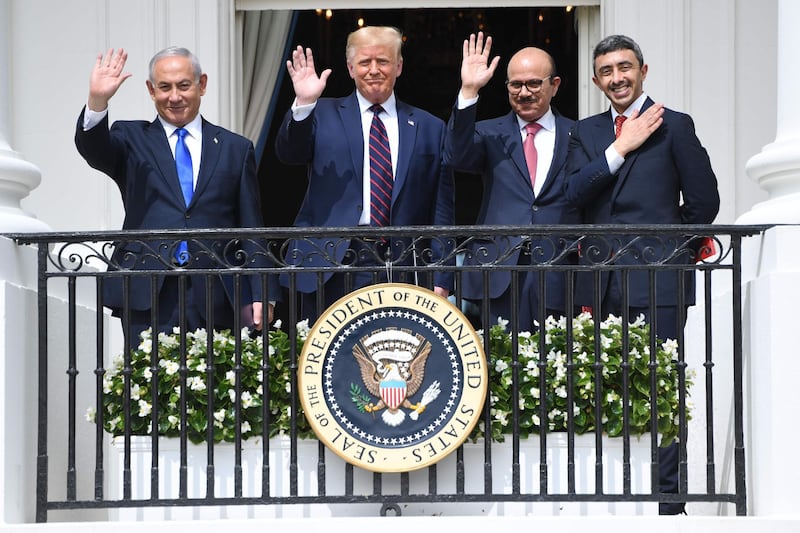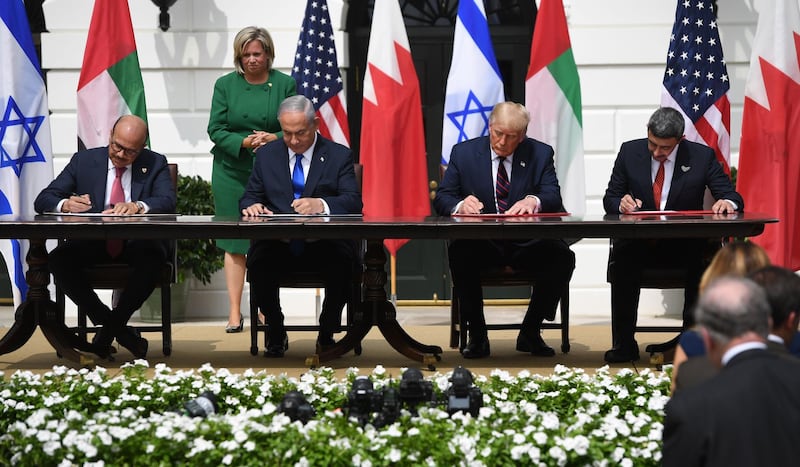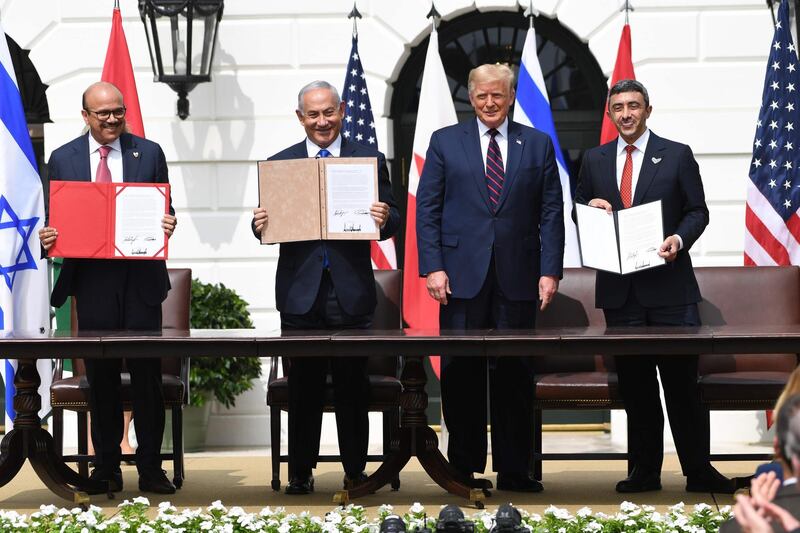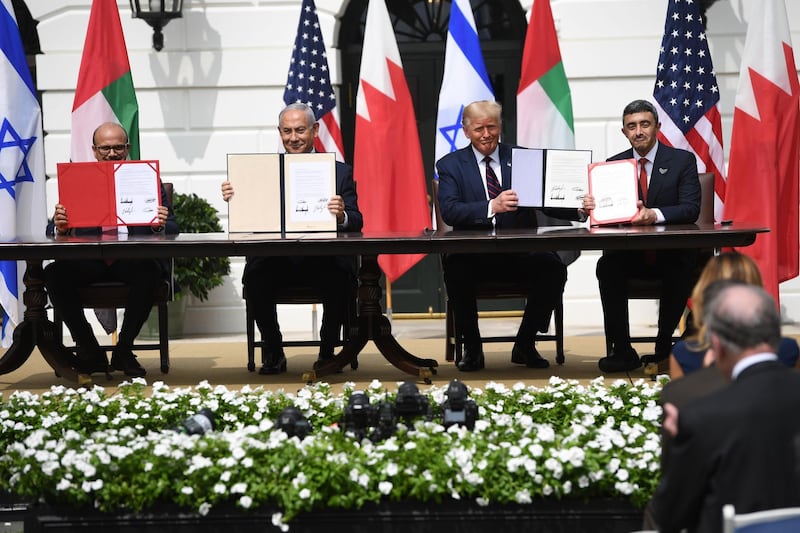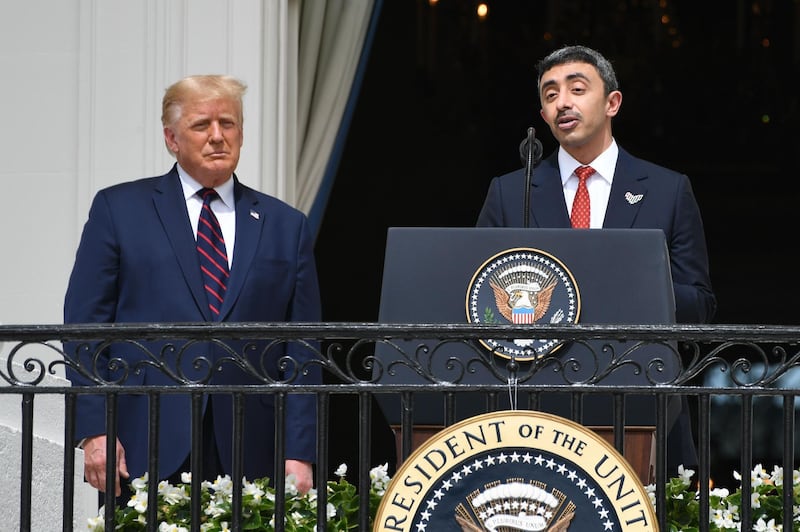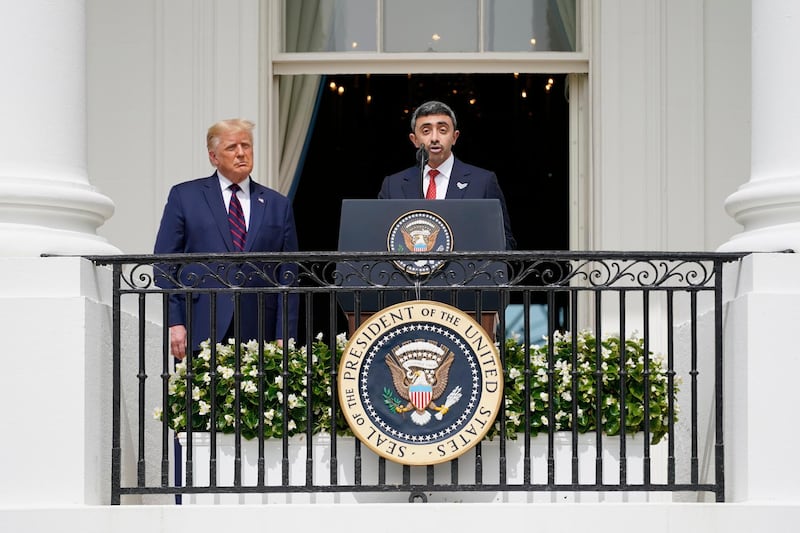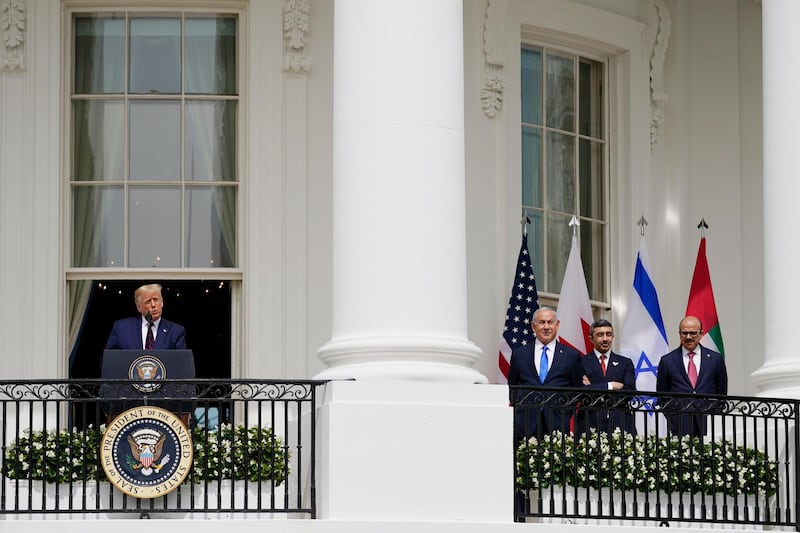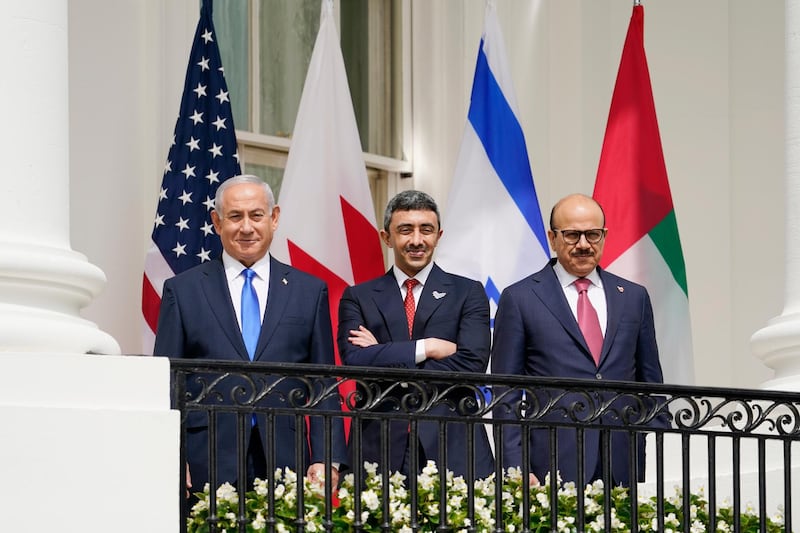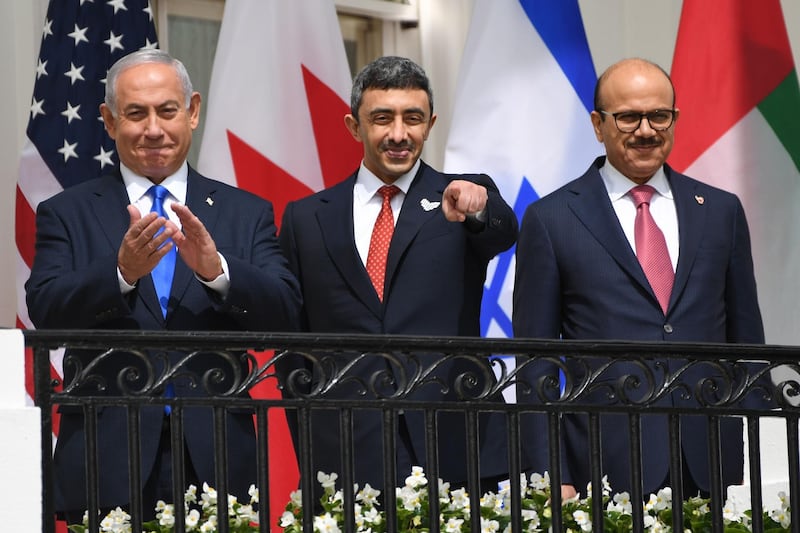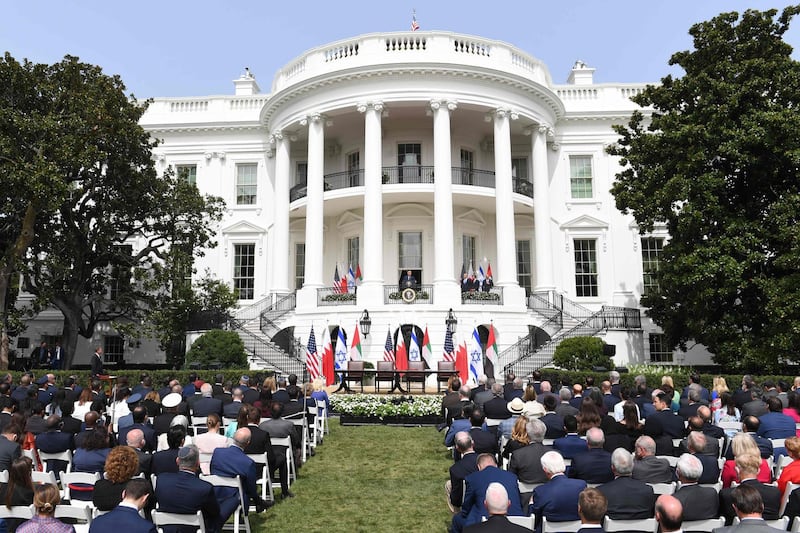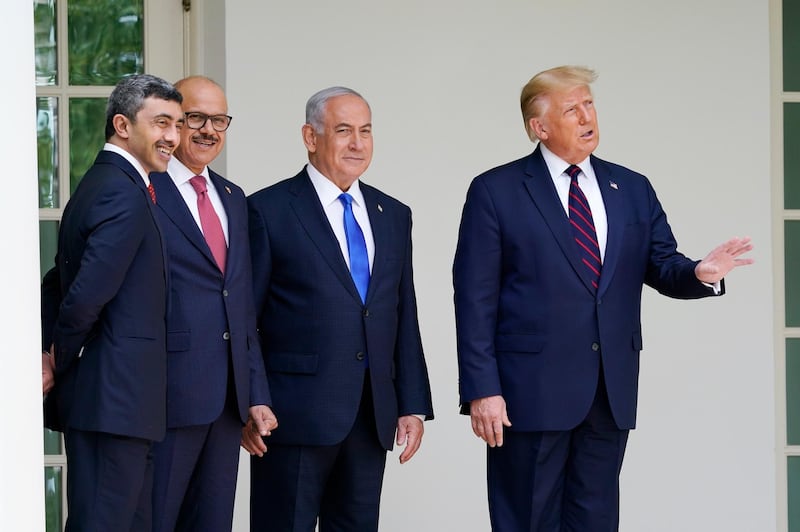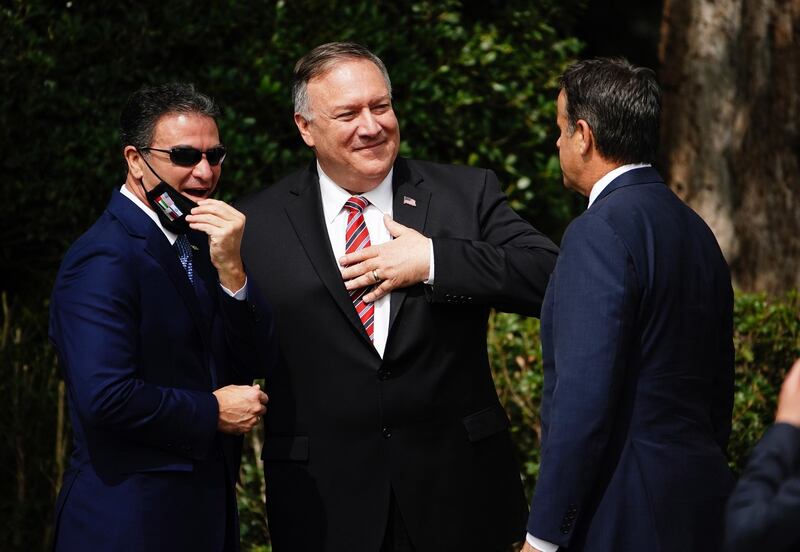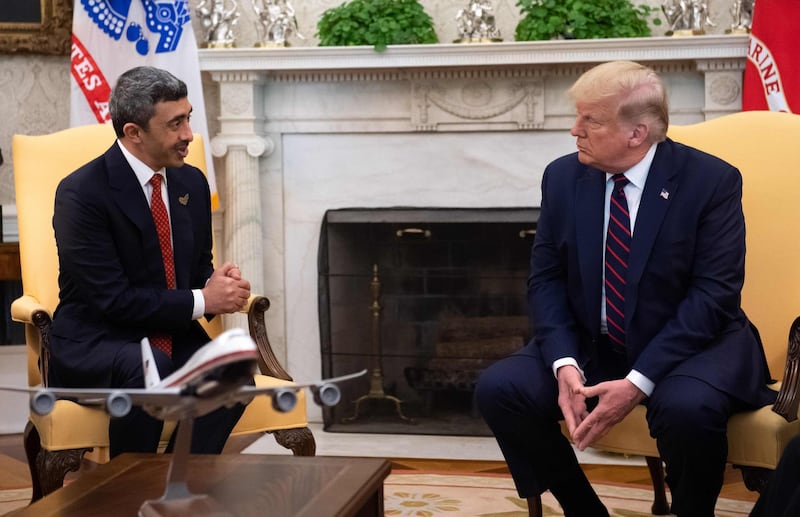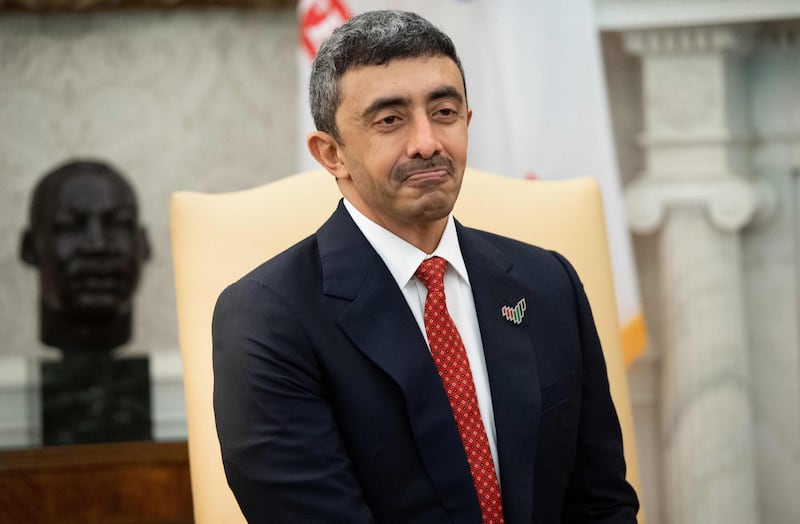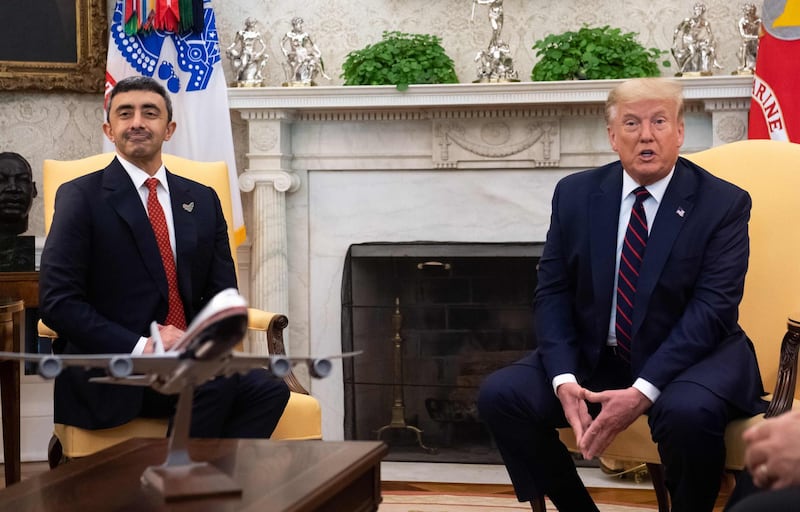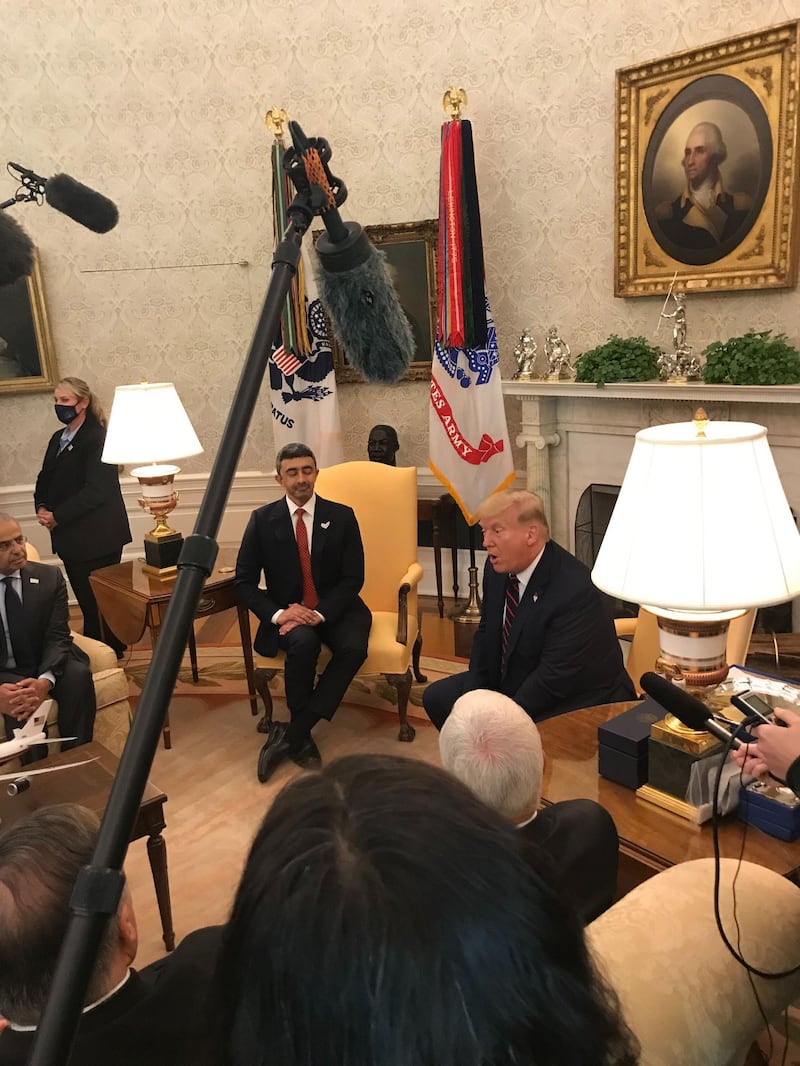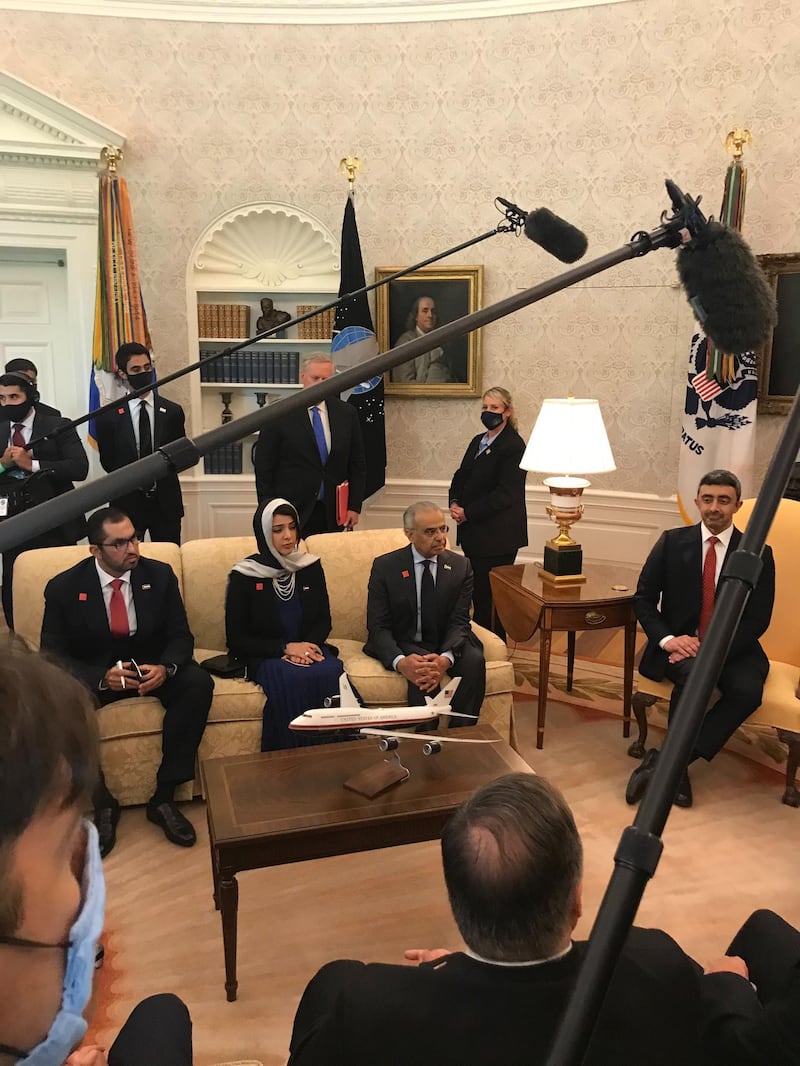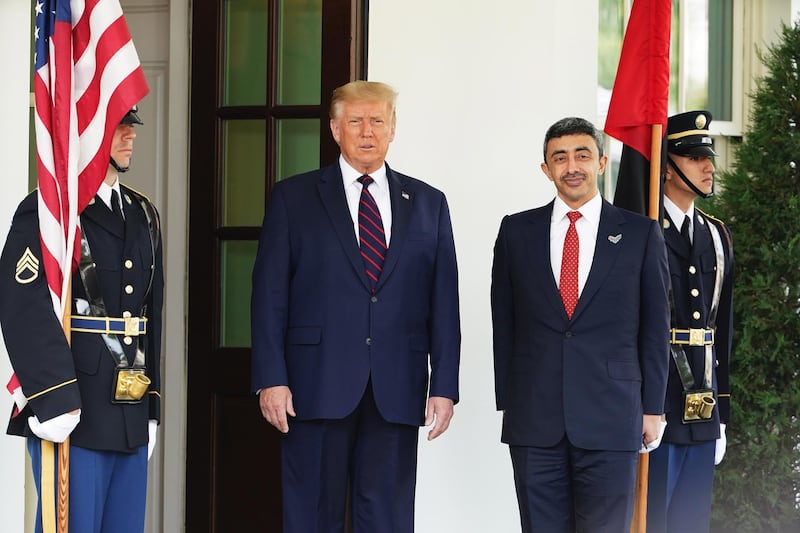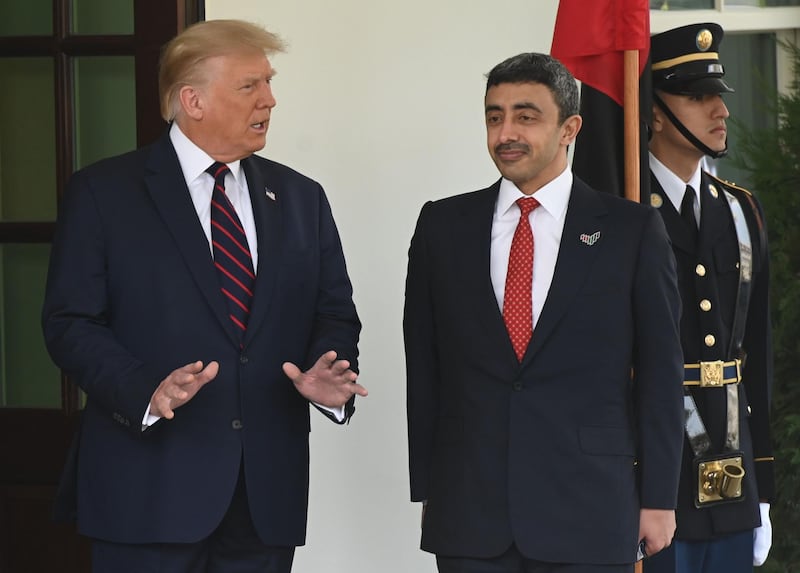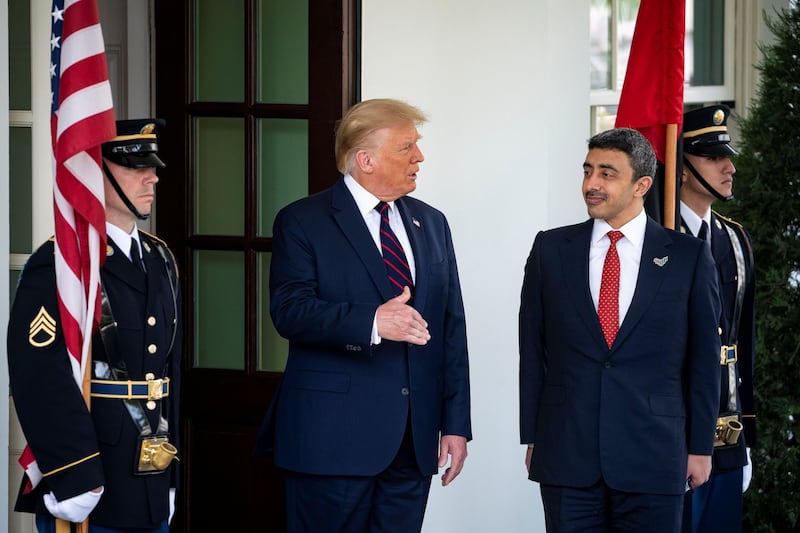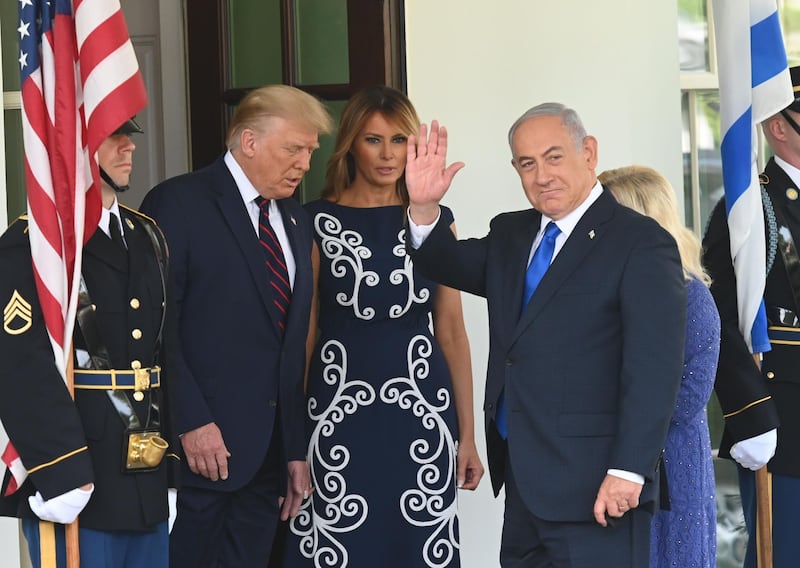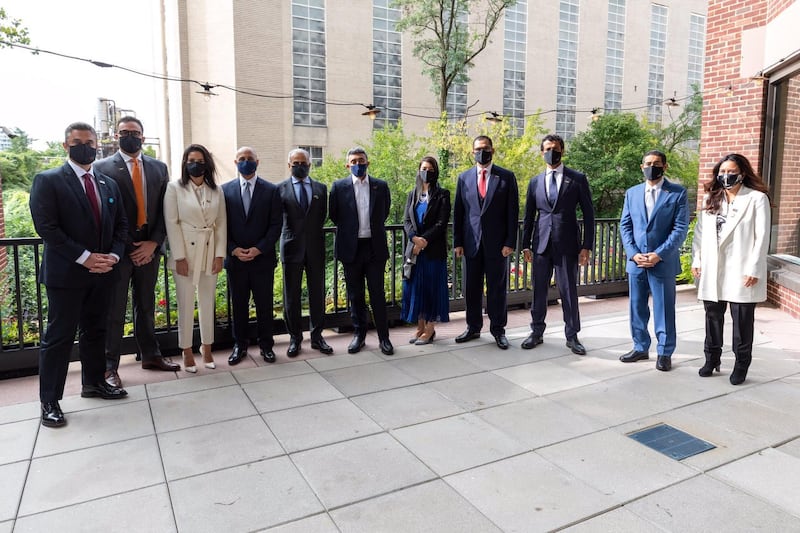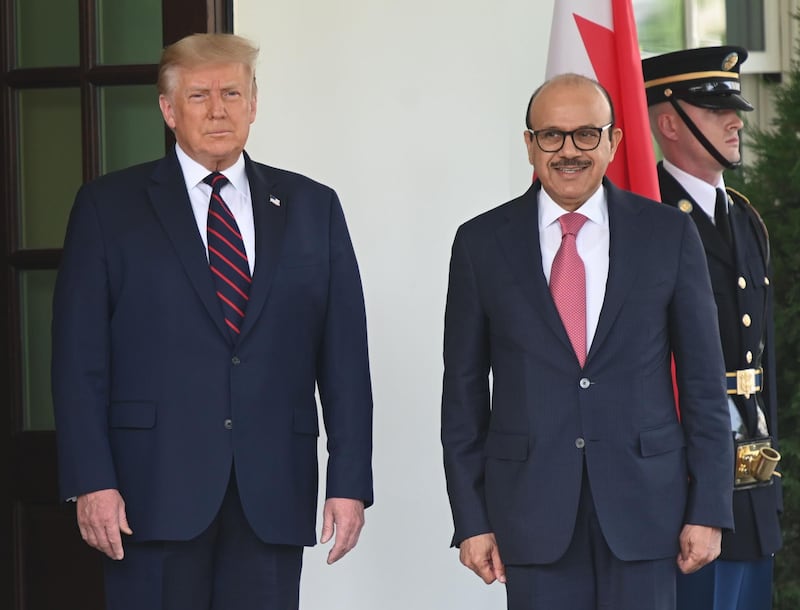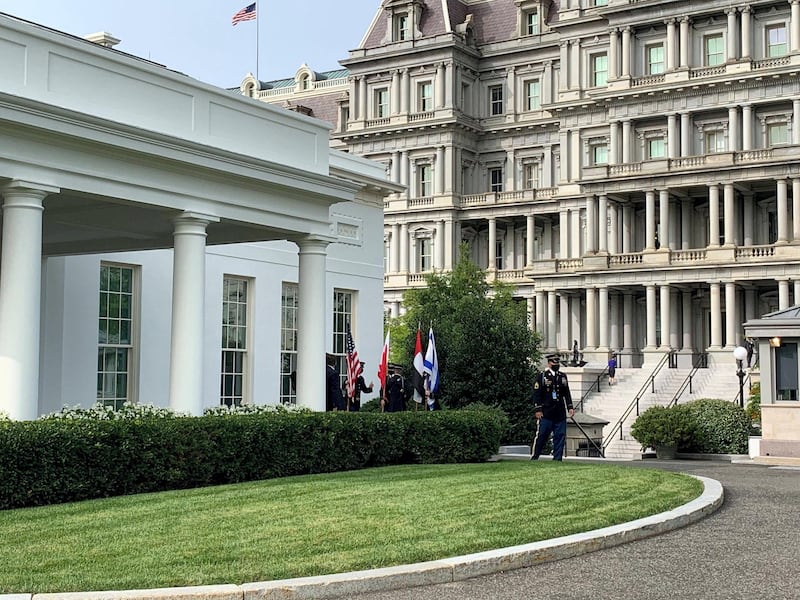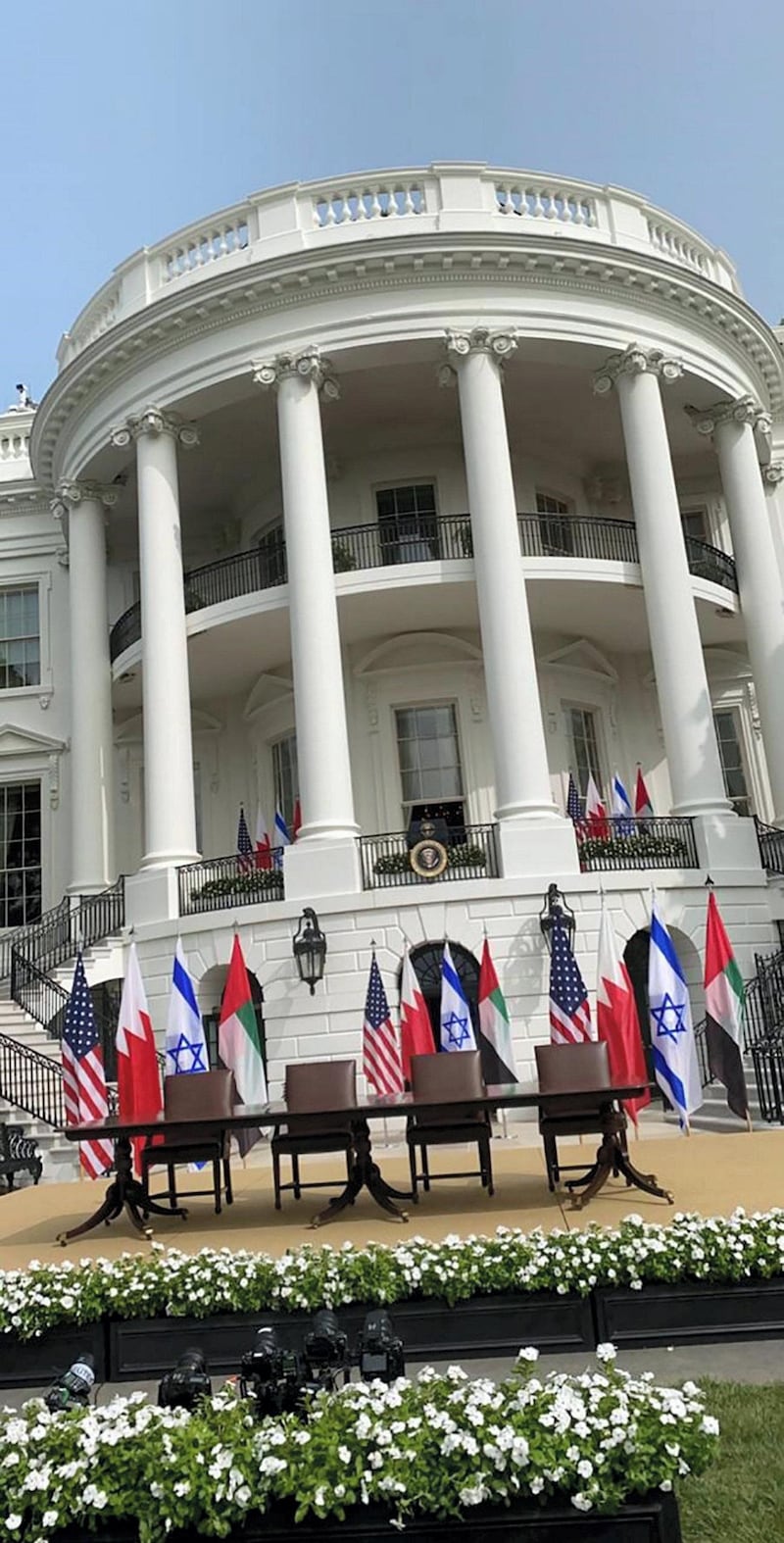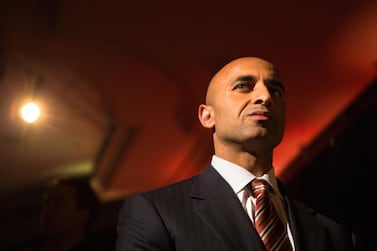The Abraham Accord "broke the taboo" in normalising relations with Israel and was a reflection of a changing mindset in the Middle East, the UAE's ambassador to the US, Yousef Al Otaiba, said on Wednesday.
Mr Al Otaiba, also a UAE Minister of State, said there was “no hesitation” in going for the accord and spoke of the non-political positives that would come from it.
But he said the timing of the deal was motivated by the threat of Israel annexing Palestinian territories, which would have hampered the warming of ties with the UAE.
Mr Al Otaiba was speaking at an online seminar organised by the Institute for National Security Studies in Israel, in his first appearance in front of the Israeli public.
“It’s time for having a relationship where you can have a healthy discussion about things you agree on, about things you don’t agree on," he said.
"But there are going to be benefits on the non-political side that I think we have ignored for a very long time.”
Mr Al Otaiba insisted that tough conversations on Palestine must be had, and repeated his support for a two-state solution.
He said he did not know which countries could be next to normalise with Israel.
“What we did kind of broke the ice, broke the taboo that this is no longer impossible," Mr Al Otaiba said.
"It can be done and it can be done with an incredible amount of support and acceptance from around the world.
“Not just on both the Democrat and Republican side in the US, but look at the reactions from Europe, look at the reactions from the region, look at the reaction even as far as India.
"So this was a very welcome development. Bahrain came very quickly after us, Sudan came quickly after them, which tells you that this is not an aberration.
"This is not one or two rogue countries going out of line and doing something unconventional. This is a trend, this is a pattern.”
In June, Mr Al Otaiba wrote an opinion piece for the Hebrew language newspaper Yedioth Ahronoth – an unprecedented event – warning Israel against annexation
He said this helped to pave the way towards the Abraham Accord.
“It was really an attempt to subvert annexation and what we felt we were doing, we traded up," Mr Al Otaiba said. "We offered what we thought is a much better deal.
"The White House, I think, saw it the same way, became very excited, enthusiastic and thought it was a much better outcome for everyone involved.
“So once everyone got involved, I think they saw this as a win-win. Negotiating the actual deal really took somewhere between four and five weeks.
"And then it was just hammering out details like statements and language and things like that.”
Mr Al Otaiba was speaking alongside retired Israeli general Amos Yadlin, the director of the institute, who recently visited the UAE.
Mr Yadlin said he had been "warmly" received.
“We were not surprised but happy to see a modern country with moderate people,” he said.
